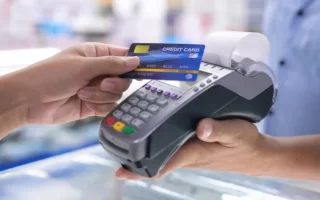More than three-quarters of adults nationwide have used a payment app, sometimes called a P2P (person-to-person transaction) app. Some of the most commonly used non-bank apps are PayPal, Venmo, and Cash App. These apps can be used on a computer or mobile device to send money to someone without having to write a check or hand them cash.
Young people use paid apps more frequently. According to a March 2022 survey by Consumer Reports, 85% of consumers aged 18 to 29 have used one of the paid apps.

Funds in payment app accounts are usually not secured by deposits
Non-bank payment apps help you transfer money to and from a linked bank, credit union, or credit card account. They also allow you to keep money in them. In fact, the money you receive usually stays in your account in the payment app until you log in and transfer it to a linked account.
Putting money into a payment app may seem the same as putting money into a traditional deposit-insured bank account. You can view your balance and transactions just as you would in online banking. The difference, however, is that the money in the app can be held in an account at a non-FDIC (Federal Deposit Insurance Corporation) member bank or NCUA member credit union (short for the National Credit Union Association). This means you may not have a federal deposit guarantee.
This distinction is critical for you because if you have money in a bank or credit union account, that money is insured in the event that the institution fails. However, deposit insurance does not cover the failure of a non-bank company. When you consider the worst-case scenario that could happen, ask yourself: What would happen if the company holding my money went bankrupt or went bankrupt?
When a payment app fails, it’s often unclear what happens.
Apps can be programmed differently, with different business models, investment strategies, and risk levels. Instead of keeping your money in a bank or credit union account, a payment app company can invest in loans and bonds. The company can make money on these investments without typically having to pay you any interest. Payment app businesses can be exposed to risk from investment losses, changes in interest rates, exchange rates, and liquidity issues.
The user agreement you agree to may be confusing, complex, or even silent about where your money is held and how it is invested. It may not explain to you whether your funds will be guaranteed at a bank or credit union and under what conditions, or what happens if the non-bank payment app business fails or goes bankrupt.
In contrast, the money you deposit in a bank or insured credit union account is protected up to the amount of the guarantee if the company fails. The FDIC and NCUA protect up to $250,000 for deposits with the same or identical owners. If a bank or credit union fails, you can still get your money back quickly.
If the non-bank payment app business fails, your funds are likely to be lost or become entangled in a lengthy bankruptcy process. You may find yourself among other failed app lenders, waiting to see if you will be able to recover some of your funds after the transaction is completed.
Some apps claim to offer pass-through insurance agreements with banks or credit unions for customers who sign up for additional services. For example, you’ll need to use a company-branded card, or agree to have direct deposits made into your account. For an account to qualify for pass-through insurance coverage, it must comply with certain rules and regulations set by the FDIC and NCUA.
Having pass-through insurance means that your funds are protected from the bankruptcy of the bank or credit union where the app holds the funds. It does not guarantee that you will not lose money if the payment software company goes bankrupt. This means that if the company goes bankrupt, you will be at risk of losing your funds. However, if the company meets all relevant requirements, your funds can be safely held with a partner bank or credit union. Although you may still face the risk of delays in accessing your funds.
What are we doing
We’ve taken steps to help you identify risks and address issues associated with leaving money in payment apps:
- Featured Report. Get an overview of the most popular payment options and whether your funds are protected.
- Get answers. Find clear, unbiased answers to common money questions, like: Is my money safe in payment apps?
- If you experience problems with any financial product or service, including problems withdrawing money from the App, please make a complaint to us.



